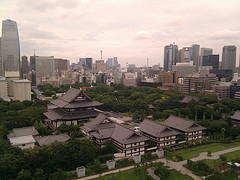My premise is my shakiest part: That enlightenment is not a black and white thing; there are levels to it that land in shades of gray. I say this because I’ve experienced different levels of realization myself, where my understanding of something has transcended my previous understanding.
If you accept this premise, my question is this: How enlightened does one have to be in order to authentically teach the Buddhadharma? Where do we draw the line? Can a Buddhist teacher be addicted to cigarettes? Eat meat? What about sex—can a Buddhist teacher sleep with their students?
Many think that the line is drawn at sexual misconduct. Consider a recent comment at the Tricycle Book Club, where we’re discussing Sex and the Spiritual Teacher:
I think an important distinction needs to be made between a Buddhist teacher and spiritual leaders in other traditions. In your book, you say that “It is entirely possible for a spiritual teacher to be wise, compassionate, empathetic, and inspiring, and at the same time sexually exploitive.” This is not the case for a Buddhist teacher; clearly, for any Buddhist, being sexually exploitive demonstrates an absence of wisdom and compassion. What you seem to mean is that it is possible for the teacher to know what wise and compassionate actions are, but be unable to consistently carry them out—he may know he is “sinning,” and feel repentant, but be a flawed human being.
For a Buddhist teacher, however, it is not a matter of knowing what is the right thing to do, but of actually being able to practice it, that makes one qualified to be a teacher. This is not to say a Buddhist teacher will never get angry at the guy who cut her off, or have romantic thoughts about an attractive person, but she will have the wisdom, not just knowledge, to be able to avoid an error as egregious as having sex with a student. Anyone without enough enlightenment to regard lust with detachment should not be pretending to the level of wisdom necessary to teach others. The local priest may have an affair with a parishioner and know it is wrong, and confess, and ask forgiveness. But a Buddhist teacher should not presume to teach if he is still liable to such mistakes. And if he was sincerely in error about his level of attainment, then we should probably doubt him the next time he says he has achieved greater wisdom—and he should learn to doubt his own judgment as well. Buddha was very explicit on the this point: lust is always as source of delusion.
According to this, a Buddhist teacher cannot be sexually exploitive. Because if they are sexually exploitive then it’s clear that they aren’t very far down the Buddhist path.
What do you think?
Myself, I feel conflicted. On the one hand I totally agree with this; it’s how I feel about Buddhists at War: if you’re acting violently and calling it a realization of emptiness, you haven’t realized emptiness. Of course, I also see the difficulties with this perspective. We’re all human beings—including the wisest among us—and as human beings we’re prone to, often unenlightened, human tendencies. (An interesting idea that I’ve heard recently at both a TED talk at the UN on compassion and at the recent Climate, Mind, and Behavior symposium at the Garrison Institute is related to this. Recognizing the difference between biological and cultural evolution, the idea is that we have morally outgrown a lot of what our animal bodies and reptilian brains have been hardwired to do. This explains some of the tension surrounding issues like sexual misconduct.)
What’s the middle ground? Can we simultaneously recognize that our Buddhist teachers are human beings with flaws and also expect them to not support wars or sleep with their students?
Image: from the Flickr photostream of CyanSnapDragon
Thank you for subscribing to Tricycle! As a nonprofit, we depend on readers like you to keep Buddhist teachings and practices widely available.
